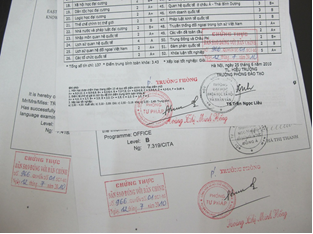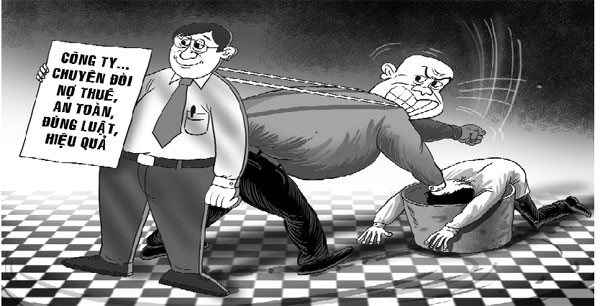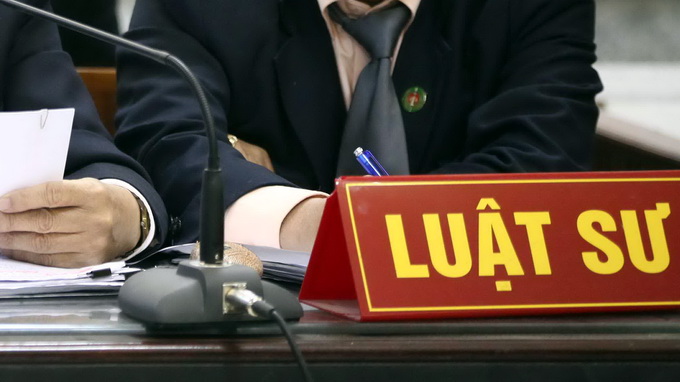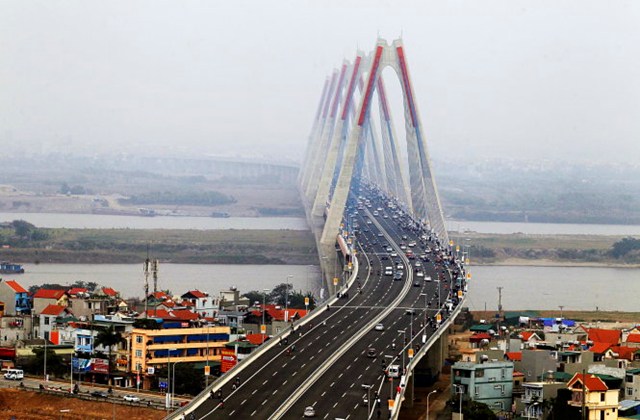At the 6th session, the 13th National Assembly passed the Law on Citizen Reception. This law consists of 9 chapters with 36 articles and takes effect from July 1, 2014. The law fully stipulates the principles of citizen reception, such as: transparency, democracy, promptly, confidentiality, and ensuring safety for whistleblowers; respecting and facilitating favorable conditions for citizens to lodge complaints, denunciations, and reflections in accordance with legal provisions. Below are the basic contents of this law.
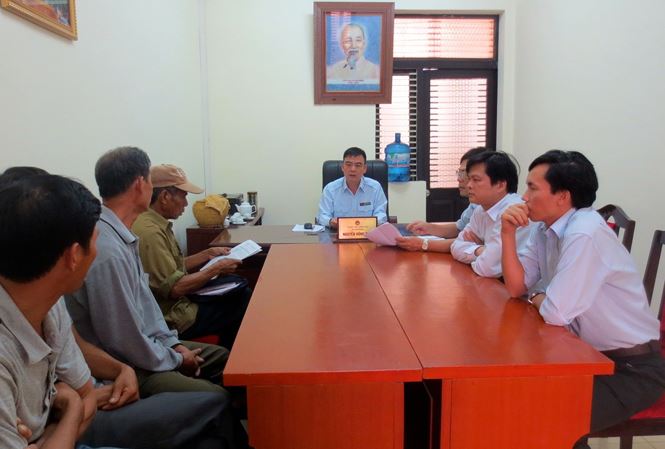
* On the Scope of Adjustment and Subjects of Application
Originating from the view that citizen reception is essentially a method for officials and public employees of agencies and organizations to directly listen to, receive, and clarify complaints, denunciations, recommendations, and reflections from the people. This helps to resolve complaints and denunciations promptly, accurately, and lawfully, strengthening the close ties between the people and the Communist Party and the State. The Law on Citizen Reception 2013 has prescribed the responsibilities of state agencies in citizen reception. These include agencies authorized to resolve complaints and denunciations or to receive complaints, denunciations, and recommendations. The reception of citizens by political organizations and socio-political organizations is regulated by these organizations based on the objectives, principles, and procedures outlined in this law and suited to the specific nature and activities of each agency. The citizen reception of agencies under the Government of Vietnam and public service providers is detailed by the Government of Vietnam.
Additionally, the law stipulates the rights and obligations of individuals making complaints, denunciations, recommendations, and reflections; the organization of citizen reception activities at citizen reception offices and venues of agencies, organizations, and units; and conditions ensuring the activities of citizen reception.
The law applies to agencies, organizations, and units responsible for citizen reception; citizen reception offices and venues; citizens, agencies, organizations, and units visiting citizen reception offices and venues to file complaints, recommend, and reflect; citizens visiting citizen reception offices and venues to denounce; and relevant agencies, organizations, and individuals. For the reception of representatives of agencies and organizations lodging complaints, recommendations, and reflections; and foreign citizens lodging complaints, recommendations, reflections, and denunciations, the law stipulates the same application as for citizen reception.
* On Citizen Reception Places
For the first time, the law clearly defines citizen reception places: Citizen reception offices are where citizens can come directly to lodge complaints, denunciations, recommendations, and reflections with leaders of the Communist Party and the State at the central or local levels. These offices include representatives from several central and local agencies and organizations to regularly receive citizens and are places where leaders of the Communist Party and the State at the central or local levels directly receive citizens when necessary. Citizen reception offices include: Central Citizen Reception Office; Citizen Reception Offices at provincial and city levels directly under the central government (provincial levels); Citizen Reception Offices at district, district-level cities, district-level towns under provinces (district levels). The reception of citizens by the Party committees, People's Councils, and People's Committees of communes, wards, and commune-level towns is conducted at the offices of the People’s Committees of communes, wards, and commune-level towns.
To enhance the efficiency of citizen reception activities at citizen reception offices and to coordinate and facilitate the work of central and local agencies in citizen reception, complaint, denunciation, recommendation, and reflection resolution, the law prescribes the establishment of citizen reception boards to directly manage citizen reception offices at each level, in coordination with representatives of relevant agencies and organizations to regularly conduct citizen reception at these offices.
For state administrative agencies from the ministerial level downwards, the Supreme People's Court, People's Courts at all levels, the Supreme People's Procuracy, people's procuracies at all levels, State Audit, and regional State Audit offices must regularly organize citizen reception at their respective agencies. The Government of Vietnam, Government Inspectorate, Government Office, provincial-level People's Committees, district-level People's Committees, provincial-level People’s Committee Offices, and district-level People’s Committee and People’s Council Offices participate in regular citizen reception at the central, provincial, and district-level citizen reception offices, so they do not arrange regular citizen reception at their own offices.
* On the Responsibilities of Citizen Reception
The law stipulates that the Central Office of the Communist Party, the Central Inspection Committee, the Central Internal Affairs Committee, the Office of the President, the Government Office, the People's Petition Board under the Standing Committee of the National Assembly appoint representatives to coordinate with the Central Citizen Reception Board to regularly perform citizen reception at the Central Citizen Reception Office; the Provincial Party Committee Office, Provincial Inspection Committee, Provincial Internal Affairs Committee, the Office of the Delegation of the National Assembly and the People’s Council at provincial levels appoint representatives to coordinate with the Provincial Citizen Reception Board to regularly perform citizen reception at provincial-level citizen reception offices; the District Party Committee Office, and District Inspection Committee appoint representatives to coordinate with the District Citizen Reception Board to regularly perform citizen reception at district-level citizen reception offices.
The agencies of the National Assembly are responsible for organizing citizen reception at the reception places of the National Assembly or locations chosen by the agencies of the National Assembly when necessary to receive complaints, denunciations, recommendations, and reflections from voters. National Assembly delegates perform citizen reception at provincial-level citizen reception offices or places arranged by the delegation of the National Assembly delegates as assigned by the head of the delegation or when necessary. Members of provincial, district-level People’s Councils perform citizen reception at citizen reception offices of the same level or at citizen reception places in the locality where the delegate is elected, as arranged by the standing committee of the People's Council at the same level. Members of commune-level People’s Councils perform citizen reception at the People’s Committee offices of the same level.
Ministries, ministerial-level agencies establish citizen reception departments or assign officials from the ministry’s inspection unit to handle citizen reception; specialized agencies under provincial-level People’s Committees assign officials from their inspection units to handle citizen reception; the Supreme People’s Court, people’s courts at all levels, the Supreme People’s Procuracy, people’s procuracies at all levels, state audit offices, and regional state audit offices are responsible for organizing citizen reception and arranging citizen reception venues at their respective agencies to receive complaints, denunciations, recommendations, and reflections from citizens.
Citizen reception by agencies under specialized agencies of provincial-level People’s Committees and citizen reception by specialized agencies under district-level People’s Committees are regulated by the Chairman of the provincial-level People’s Committee to suit the requirements, nature, organization, and activities of each agency.
* On Citizen Reception Activities
The Central Citizen Reception Board, provincial-level Citizen Reception Boards, and district-level Citizen Reception Boards are responsible for publicly posting the citizen reception schedules of leaders of the Communist Party and State at central and local levels, the list of agencies and organizations participating in citizen receptions, and the focused issue resolutions at each citizen reception meeting at the citizen reception offices. Agencies, organizations, and units are responsible for publicly posting information about their own citizen reception activities at their offices, citizen reception venues, and on their respective websites (if available).
The citizen reception schedules of representatives of the Ethnic Council, committees of the National Assembly, National Assembly delegates, and People’s Council delegates are publicly posted at the National Assembly’s citizen reception venue, the offices of the National Assembly delegation, People’s Council citizen reception places at provincial, district, and commune levels. When multiple individuals lodge complaints, denunciations, recommendations, reflections on a single issue at a citizen reception place, the citizen reception official requests these individuals to appoint representatives (the complainant, denouncer, recommender, or reflector) in writing with the signatures of all complainers, denouncers, recommenders, and reflectors to present their issues to the citizen reception official. If the group comprises five to ten people, one or two representatives are appointed; if there are more than ten people, additional representatives might be appointed, but not exceeding five. Representatives are responsible under the law for the legality of their representation and the written appointment document.
The head of the agency, organization, unit, or the head of the citizen reception board where numerous complaints, denunciations, recommendations, reflections are concentrated is responsible for directly receiving or appointing a representative to receive the representatives of the complainants, denouncers, recommenders, and reflectors to listen to their issues, receive complaint, denunciation, recommendation, reflection forms, and any related information and documents they provide. If the complainants, denouncers, recommenders, reflectors do not yet have complaint, denunciation, recommendation, reflection forms, the citizen reception official requests the representative to write it down or accurately record the presented issues, read it back to them, and request signatures or thumbprints to confirm. If the issue falls within the jurisdiction of the receiving agency, organization, unit, the citizen reception official will receive, consider, and process it for resolution and notify the representatives of the complainants and denouncers of the outcome according to legal regulations; if the issue falls outside their jurisdiction, the complaint or denunciation form will be transferred, or the complainants denouncers, recommenders, reflectors will be guided to the appropriate authority.
For complex complaints, denunciations, recommendations, reflections involving multiple agencies, already addressed by various agencies or organizations, or cases with numerous participants and complex developments, the head of the agency, organization, unit or the head of the citizen reception board is responsible for: Presiding over or coordinating with representatives of relevant agencies, organizations, units, or local People’s Committees where the complaint, denunciations, recommendations, reflections originate to receive the representatives of the complainants, denouncers, recommenders, and reflectors; Requesting relevant agencies, organizations, units to provide information and documents; Appointing responsible individuals to participate in receiving the representatives.
Upon receiving requests from the head of an agency, organization, unit, or the head of the citizen reception board or the person in charge of the citizen reception venue, the head of relevant agencies, organizations, units must appoint responsible individuals or directly receive the representatives lodging complaints, denunciations, recommendations, reflections; provide information and documents on the issues as requested by the authorized persons; resolve issues within their authority or direct their subordinate agencies, organizations, units to resolve the issues according to legal regulations; primarily facilitating, persuading, and taking measures for citizens to return to their local areas.
Source: Binh Phuoc Online
 Article table of contents
Article table of contents
